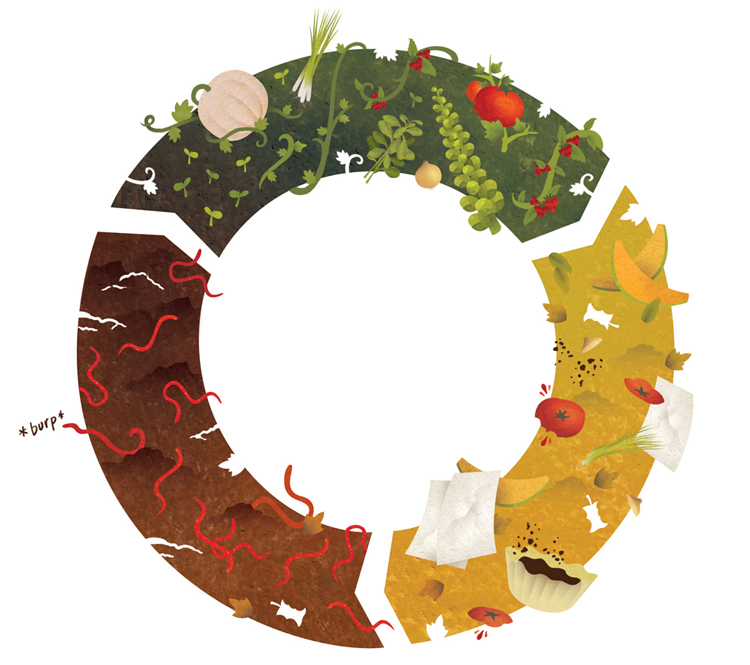Eliza Bufferd At Latin, we’re privileged to have several healthy lunch options each day. But have you ever thought about the scraps of food you don’t finish? Do they get thrown out? Are they composted? And how about the excess food in the kitchen — where does that go? The Head of Student Life, Mr. Cronister, revealed that Latin actually composts the scraps from the kitchen. The story does not begin when the food is being composted, but rather when it arrives at Latin. Latin receives fresh food that is not shipped in plastic to reduce waste. Mr. Cronister says, “Handcut Foods does a great job of … not getting much in that is in prepackaged containers that get wasted. So most of the food comes in cardboard boxes that they are able to recycle.” The District Manager of Food at Latin, Sam Milligan, shared how Latin reduces waste through portion control. “In Lower School and Middle School we serve controlled portion sizes of what we expect students to eat based on previous behavior in an all-you-can-eat board setting” he says”We also cook our food from scratch throughout the lunch period, based on need, so we are able to control waste by not having precooked everything beforehand. This allows us to keep food fresh while controlling the amount that is produced.” This limits the amount of food put in the trash and keeps more food in compost or on the table. Mr. Cronister also talked about how one will see unused food from the previous day used in a different way for the next day, curbing waste by controlling the amount of food thrown out. A greater challenge awaits after the food has left the kitchen and is on students’ plates. When students do not eat all of the food they are served and throw some out, it becomes more difficult to compost. There is a health and safety issue here, too — the wasted food has saliva on it, which could spread sickness. Latin hopes to find ways around this issue in the future to make sure all food at Latin is composted. Latin, though still finding ways to be even more green, is more advanced in the field than other institutions. One example of this is that Latin’s middle school is LED certified, alongside being one of the few schools to compost in Chicago. In the future, Mr. Cronister hopes that Latin will have more students who want to make the school greener.]]>




































